Having lots of babies in the Year of the Dragon would be good for China's growth, but economic pressures make it difficult for the tradition to take off.
Ma Qian, who is six months pregnant, has made her friends jealous by having a baby boy born in the year of the Dragon in 2024. In fact, this is no coincidence. They are planning to have a baby soon after their wedding in July 2023. "It was all planned. As soon as I signed the marriage contract, I started preparing," said the 27-year-old, who lives in Beijing with her 30-year-old investor husband.
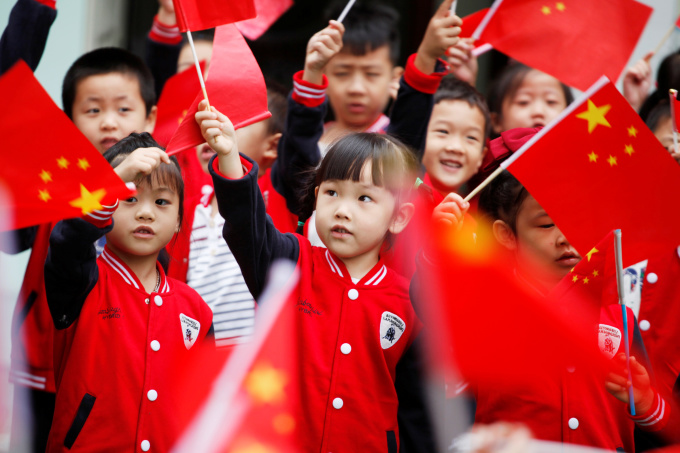
Children in Hangzhou wave the Chinese national flag as they attend a ceremony on September 29, 2017. Photo: Reuters
Having a child born in the year of the Dragon is generally considered auspicious by the Chinese. The dragon tends to be associated with greater achievements, as the dragon – the only mythical animal in the 12 zodiac signs – represents power and greatness.
In fact, China's birth rate in the Year of the Dragon 2012 rose to 14.57%, from 13.27% in 2011, before falling to 13.03% in 2013. A Financial Times analysis also found spikes in birth rates in more recent dragon years, such as 1988 and 1976.
Dragon children are also believed to possess desirable traits such as intelligence, leadership, and good fortune. A 2017 study by Naci Mocan and Han Yu, two economists at Louisiana State University, sought to test this belief.
They found that Dragons scored better on average on a variety of measures, including the rate of obtaining a bachelor's degree and college entrance exams. The National Bureau of Economic Research in the US explained that "the higher academic performance of Dragon children in China is largely due to their parents' much higher expectations."
That is, dragon children may be better off not because of any supernatural inheritance, but because of careful parenting. But in any case, this result is good for China's human resources, with a generation of invested labor.
Yuan Xin, vice president of the China Population Association, admitted that the trend of total population decline will certainly persist and become an inherent feature.
In 2022, China's population will shrink for the first time since the 1960s. By 2023, India will overtake it as the world's most populous country. In January 2024, the country's population will continue to decline. The fertility rate - the number of babies born in a year compared to the total number of women of childbearing age - is currently estimated at 1, far below the 2.1 needed to maintain a stable population.
A declining population poses a challenge to China’s growth, especially as the country shifts its focus to domestic demand as a key driver. A Bruegel study in October 2023, by Alicia García-Herrero and Xu Jianwei, found that a declining population could shave 1.4% off China’s annual GDP growth after 2035.
This is because the declining birth rate is starting to have a clear impact on the working-age population, along with the gradual urbanization process. With China's birth rate falling for seven consecutive years, raising concerns about the long-term economic future, the tradition of giving birth to dragon-year children offers some hope that the population decline in 2024 will be milder.
Yue Su, chief China economist at the Economist Intelligence Unit (EIU), expects new births to rebound this year. "This is likely to contribute to a positive population growth trajectory again," he said.
However, there is not much hope for a baby boom this year. Economic pressure makes families who want to have a baby have to think carefully.
Dr Mu Zheng, a sociologist who studies Chinese fertility at the National University of Singapore, predicts a surge in the number of babies this year “but it could be very moderate”. “Having a baby is still a big decision that needs careful consideration. The auspicious meaning of the Year of the Dragon may motivate those who intend to have children, but it will not have much effect on those who do not want to,” she said.
This expert analyzed that there are three problems behind China's population decline. First is the increasing pressure and costs. In addition, the views on life choices are changing. In particular, the responsibility of children can be considered a burden and not a life goal for some people. Persistent gender stereotypes also create reluctance in marriage and childbirth among highly educated women.
Wang Feng, a Chinese demographer at the University of California, also said that economic pessimism is a drag on the birth rate this year. "Having children is a lifelong responsibility. That's why more and more Chinese women are looking for ways not to have children or not to get married," he said.
In practice, some couples even avoid having children in the Year of the Dragon for fear that the child will be exposed to more pressure and competition. Liu Xi, a Chengdu native, had to wait in long lines at the hospital for prenatal checkups and even when giving birth in 2000. "It was the year of the millennium and also the year of the dragon, so pregnant women were everywhere," Liu recounted.
Liu’s dragon daughter has spent much of her school life surrounded by fierce competition. Classes are larger and resources are stretched. Parents may not want to expose their children to such circumstances and will avoid having children this year, she said.
Chief economist Yue Su forecast that after a brief recovery in 2024 and possibly 2025, the number of newborns is expected to return to the previous downward trend, due to fewer women of reproductive age and a falling birth rate.
The Year of the Dragon alone is unlikely to change the demographic landscape. Dr. Mu Zheng argues that effectively increasing the birth rate will come at a high cost and require significant systemic changes to support parents’ work-life balance, as well as address gender inequality in marriage and family.
And while expectations for the Dragon baby boom remain modest, some unfavorable views have emerged. In late January, Chinese social media went viral, suggesting that the Year of the Dragon was not a good year for marriage.
The argument is that the 2024 Spring Festival falls on February 4, which is before the first day of the Lunar New Year (February 10), which according to folk beliefs is called the year "without spring". Because spring is the time of growth and development, the year "without spring" is considered the "year of widowhood", leading to bad luck in marriage.
Public opinion has prompted China's Ministry of Civil Affairs to investigate, and a state television station has had to broadcast a story confirming that there is no connection between bad luck and a "year without spring". Along with that, Lichun occurring before the first day of the lunar month is not uncommon, and has happened in 2019 and 2021.
Phien An ( synthesis )
Source link


![[Infographic] Notable numbers after 3 months of "reorganizing the country"](https://vphoto.vietnam.vn/thumb/1200x675/vietnam/resource/IMAGE/2025/10/4/ce8bb72c722348e09e942d04f0dd9729)



![[Photo] General Secretary To Lam attends the 8th Congress of the Central Public Security Party Committee](https://vphoto.vietnam.vn/thumb/1200x675/vietnam/resource/IMAGE/2025/10/4/79fadf490f674dc483794f2d955f6045)



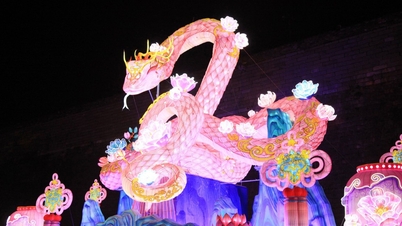

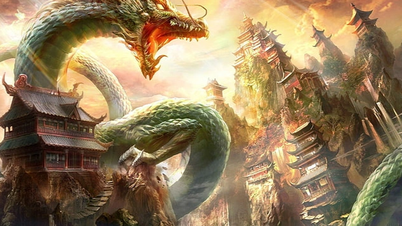

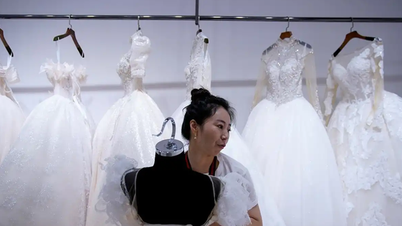





















![[Photo] Prime Minister Pham Minh Chinh chairs meeting to deploy overcoming consequences of storm No. 10](https://vphoto.vietnam.vn/thumb/1200x675/vietnam/resource/IMAGE/2025/10/3/544f420dcc844463898fcbef46247d16)
![[Photo] Students of Binh Minh Primary School enjoy the full moon festival, receiving the joys of childhood](https://vphoto.vietnam.vn/thumb/1200x675/vietnam/resource/IMAGE/2025/10/3/8cf8abef22fe4471be400a818912cb85)






































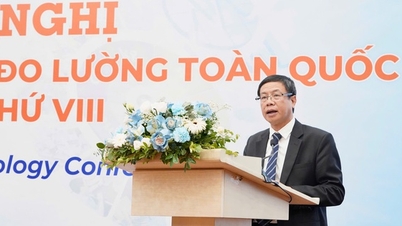






























Comment (0)